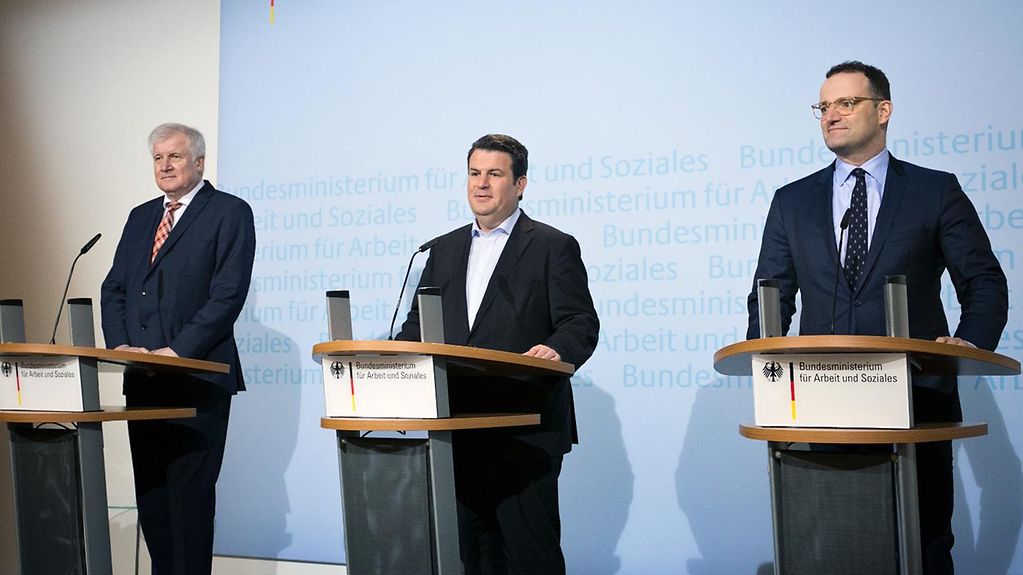Hubertus Heil, Jens Spahn and Horst Seehofer for basic pension
Cabinet ministers Hubertus Heil, Jens Spahn and Horst Seehofer have described the Cabinet’s decision to introduce a basic pension as a joint achievement. This will make the country more equitable, they declared. And it demonstrates, said Hubertus Heil, "We deliver what we have promised."
2 min reading time

Cabinet ministers Horst Seehofer, Hubertus Heil and Jens Spahn (left to right) - the basic pension is to come
Photo: BMAS
The basic pension bill now adopted by the Cabinet was presented jointly by Federal Labour Minister Hubertus Heil, Federal Health Minister Jens Spahn and Federal Interior Minister Horst Seehofer at a press conference. As of January 2021, the basic pension will put more money in the pockets of 1.3 million pensioners who have worked hard, stressed Hubertus Heil. "We devised the basic pension to make people’s everyday lives easier." The basic pension will benefit women in particular, and many people in the east of Germany.
Concrete solutions for everyday life
"We are recognising the inputs of people who have worked a great deal all their lives and have not earned much," stressed Federal Health Minister Jens Spahn. The basic pension will be specifically targeted, he added. It involves as little red tape as possible. It is important to recognise the problems people face in everyday life and to offer solutions to these. After much discussion, the German government has delivered on its promise with this decision to introduce a basic pension. The decision demonstrates that the coalition is working. It identifies problems, discusses the problems and resolves them.
Targeted and solidarity-based
"The basic pension is a building block that we still needed in our welfare state," explained Federal Interior Minister Horst Seehofer. The welfare state, he said, is based on the principle of solidarity. And traditional solidarity includes supporting people who have worked for many years if they do not have enough income in old age. If a benefit is going to target the people who really need it, it does of course involve a certain amount of work. But in the age of digitalisation, bureaucracy should not really be an issue any more. The basic pension is intended to offer specific assistance to people who are part of a mutually supportive community, i.e. the German state pension insurance scheme.